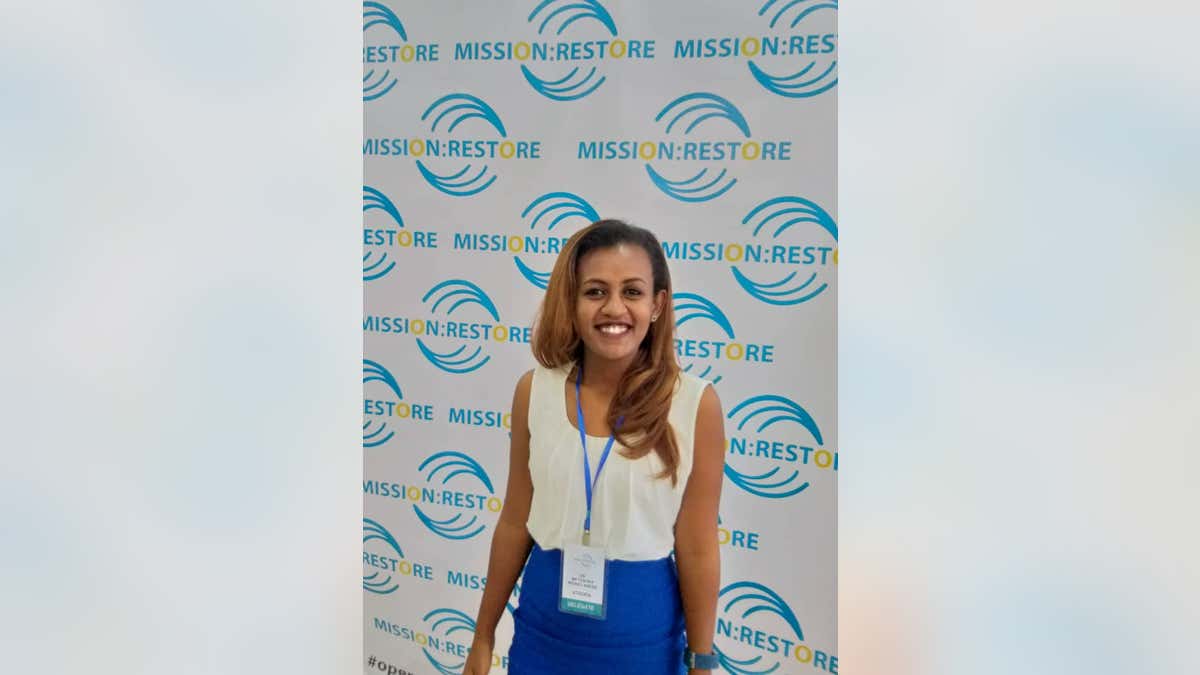Fox News Flash top headlines for July 26
Fox News Flash top headlines for July 26 are here. Check out what's clicking on Foxnews.com
Upwards of six million people in the world die of injury and trauma-related deaths each year – over 32 percent more than those who die of HIV/AIDS, malaria and tuberculosis combined. And yet, little attention is cast on such a rampant cause of death. But across much of Africa, where lives are too often ravished by the injuries resulting from car crashes, homicides, suicides, war wounds, drowning, poisoning, falls and burns, a dedicated group of female doctors are determined to buck the mortality trend by becoming leading plastic surgeons.
“In the past, there has been a lot of focus on communicable diseases, burying trauma,” Dr. Anne Mwihaki Macharia, a clinical psychiatrist and Africa Program Director of the non-profit Mission Restore, which was founded by New York-based surgeon Dr. Kaveh Alizadeh in 2010, told Fox News. “This may be attributed to a number of factors, including incomplete documentation of accident and injury data by untrained staff, shortage of physical resources and equipment, inadequate organizational resources and limited human resources.”
MEDICAL MIRACLES: CHILD BURN VICTIMS IN SYRIA BROUGHT TO US FOR LAST SHOT AT LIFE
According to the World Health Organization (WHO) statistics, the three leading causes of death from injuries – road traffic accidents followed by homicide and suicide – are only expected to continue ascending, and all be in the top 20 causes of death globally by 2030. More than 90 percent of deaths happen in countries considered middle to low income. Especially for people aged 5 to 44, injuries are listed as one of the top three causes of death.

Dr. Anne Mwihaki Macharia, a clinical psychiatrist and Africa Program Director of the non-profit Mission Restore (Credit Mission Restore)
Moreover, injury and violence also claim the lives of more men than women by almost double, statistics show. Of the 50 million traumatic injuries annually, the overwhelming majority are male — with some 74 percent of road injuries alone killing men and boys.
But for African women leading the charge, it’s all about ensuring reconstructive surgery is accessible to even the poorest of people and working to ensure those who do survive aren’t struck down by further disabilities.
“I see a lot of trauma cases — motor vehicle accidents are the major burden of surgical emergencies we see,” observed Dr. Metasebia Worku Abebe, a plastic and reconstructive surgeon from Ethiopia. “I usually take care of facial injuries, hand injuries and burn injuries both in the adult and pediatric surgical departments.”
Yet the specialized profession doesn’t come without an inherent set of challenges.
“Surgery, in general, is a male-dominated field in our country and I am the only female surgeon in the hospital I work in. In a society which is used to females being nurses rather than doctors, let alone surgeons, the challenge is tremendous ranging from communicating with patients to hospital staff that is used to working with and taking orders from a male surgeon,” Abebe continued. “There is resistance from all ends, but this is the field I chose and is the work I love so I believe persistence will change the norm.”

Dr. Metasebia Worku Abebe, a plastic and reconstructive surgeon from Ethiopia (Credit Mission Restore)
And for Dr. Dorothy Bbaale, a 30-year-old plastic surgery resident in Uganda, it wasn’t until she became a medical officer herself that she discovered the “great need” for reconstructive surgeons to assist trauma patients in her homeland.
“There was a lack of awareness about the availability of such services to the public, as well as those working within the medical field. My dream is to create more awareness and be able to provide timely services and the surgery to patients that will help prevent terrible morbidity, disability, and mortality,” she said, noting that the new development in her medical career is to major in pediatric plastic surgery, microsurgery and burns surgery.
Bbaale also underscored that it is inevitable to avoid burn surgery in Africa and much of the developing world.
“We either have to deal with it acutely or manage the post-burn sequelae, ranging from mild to severe burn contractures of the upper and lower limbs, head and neck,” she continued.
An estimated 180,000 deaths every year are caused by burns — again the vast majority occur in low- and middle-income countries, the World Health Organization (WHO) stated.
FAMILY MURDER SUICIDES IN YEMEN HIGHLIGHT DEPTHS OF WAR-INDUCED MENTAL HEALTH CRISIS
In the Kenyan capital of Nairobi, earlier this month Macharia, Abebe and Bbaale joined more than a dozen other female medical professionals across the continent for a Mission Restore gathering, aimed at addressing current scientific, clinical and professional cross-cutting issues related to acute and chronic wounds and building a network of surgeons across borders that connect, support and train local surgeons to save lives.
“Africa is facing a surgical workforce crisis and women have been underrepresented in the surgical field, even in countries where undergraduate training has achieved a balance between genders,” Macharia said. “Most cases of trauma require intense management and properly trained staff so for each surgery performed during hands-on training, one patient’s life is changed. Beyond these immediate results, local surgeons are also empowered with the skills and knowledge needed to improve the lives of countless other patients.”
CLICK HERE TO GET THE FOX NEWS APP
And as Mission Restore data points out, 5 billion people lack access to essential surgical care — and a further 2.2 million surgical specialists are needed worldwide to address the staggering gap. The organization so far has trained over 200 surgeons more than 25 African nations, and the goal is to keep going.

Of the 50 million traumatic injuries annually, the overwhelming majority are male – with some 74 percent of road injuries alone killing men and boys. (AP)
“We have only three qualified plastic surgeons in Malawi serving a population of 17 million people. I am the lone plastic surgeon in my hospital and have to deal with challenges of setting up a plastic surgery unit without a mentor,” added Dr. Wone Banda. “So the platform has provided me with a platform to network, share and learn different perspectives of other doctors, exchange knowledge and ideas on how to keep building.”









































